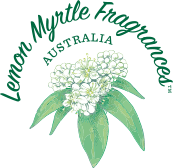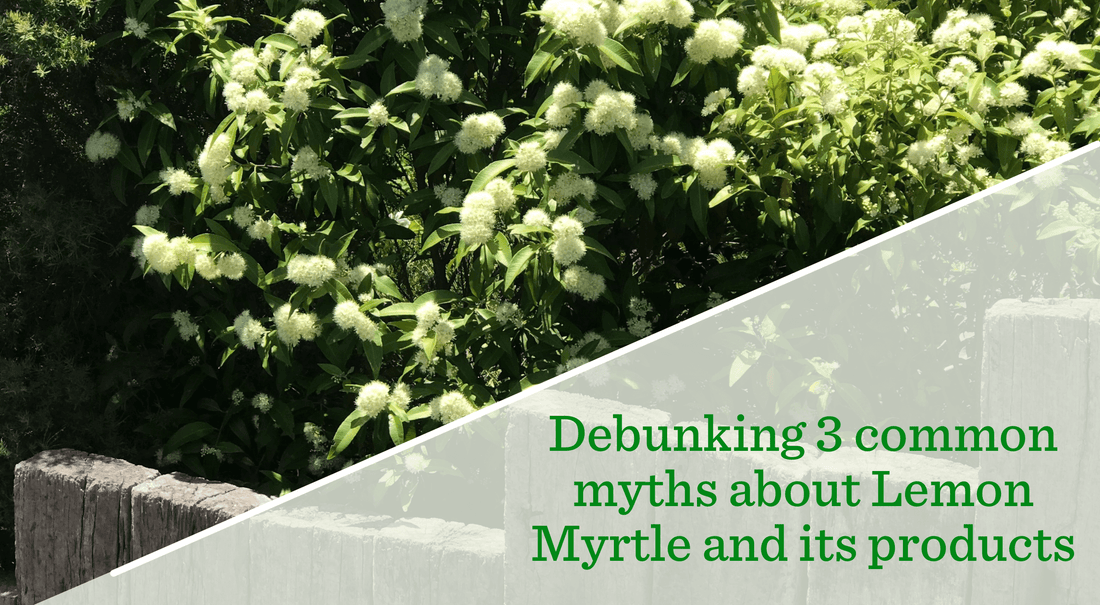Lemon Myrtle (Backhousia citriodora) is a really beautiful Australian shrub which grows naturally in the wetter coastal areas of Northern NSW and Southern QLD, and in the wild, you'll find it in the subtropical rainforests of Central and South-Eastern QLD. It grows up to 20 metres high, and has hanging branches with soft green leaves with an invigorating citrus aroma.
It's by far the most popular of Australia's native herbs, as Lemon Myrtle's fresh tangy leaves can be used in teas, desserts & baking, dressings & sauces, ice creams, dips, rubs, seasonings and meat dishes, plus more!
Several myths about Lemon Myrtle and its products have surfaced due to its global popularity but these misconceptions can cause confusion or discourage their use, which means people miss out on their full potential and benefits, so we've written this article to debunk some of these myths and separating facts from fiction when it comes to Lemon Myrtle and its products.
Myth 1: Lemon Myrtle is a citrus plant
One of the most common misunderstandings is that Lemon Myrtle is a type of lemon. It's not! But its powerful citrus scent and its name "Lemon" Myrtle lead many people to believe that it belongs to the citrus family.
Lemon Myrtle in fact belongs to the Myrtaceae family, which also includes well-known plants such as eucalyptus.
So why does it carry the name "Lemon", you might wonder? The lemon reference in the name "Lemon Myrtle" purely refers to the fragrance the plant exudes, which bears a striking resemblance to the fresh and tangy scent of lemons.
Lemon Myrtle's lemony scent comes from a natural compound called "citral" and the leaves of the Lemon Myrtle plant contain even more citral than lemons themselves! So it's often referred to as being "more lemony than lemon". So, while it smells like a citrus plant, its botanical lineage is a whole different story. 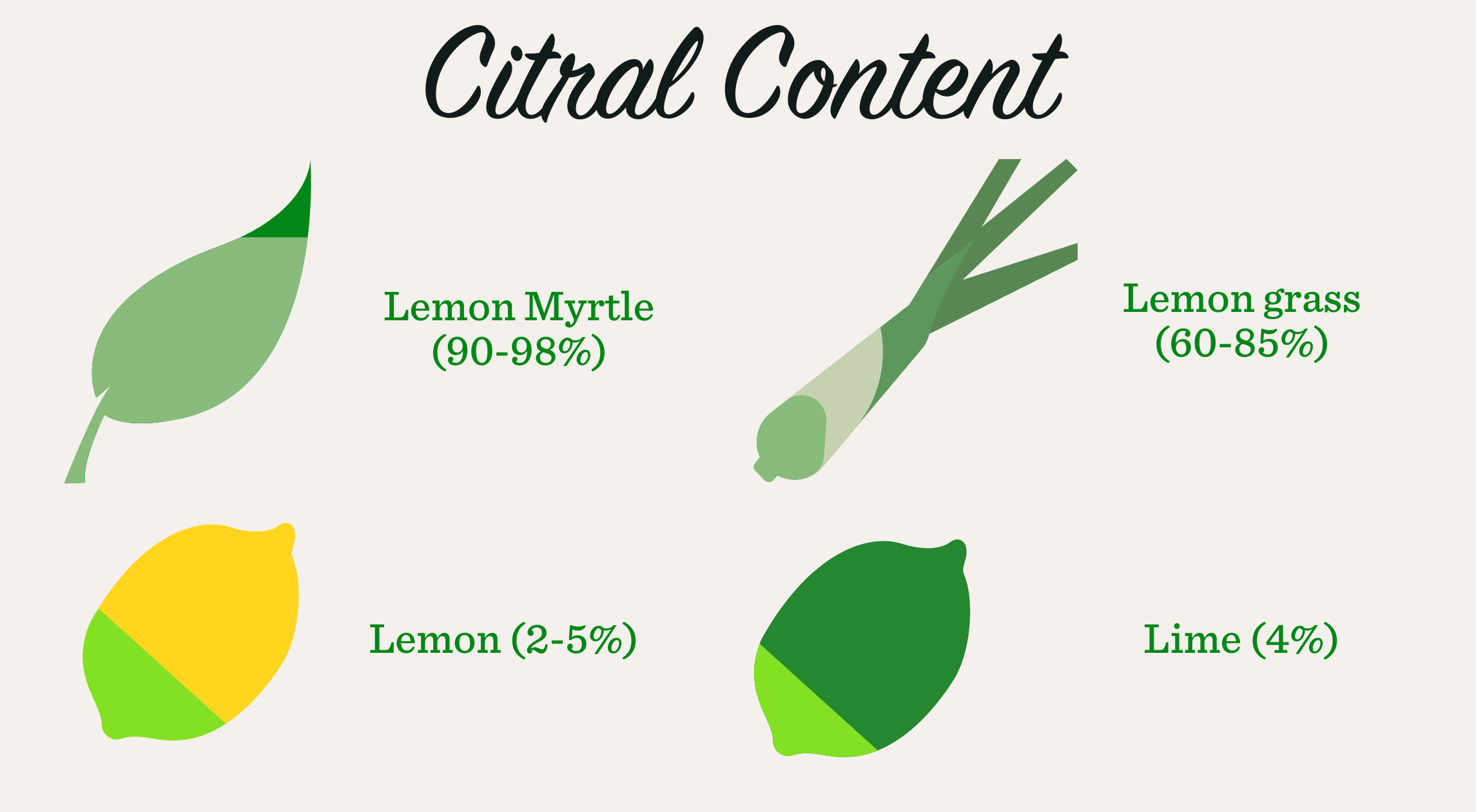
Myth 2: Lemon Myrtle and its products are just for the smell.
While the fragrance alone is enough to make anyone fall in love with Lemon Myrtle products, it offers an incredible number of benefits way beyond its divine fragrance.
Lemon Myrtle's antibacterial and antifungal properties make it an excellent natural alternative for both cleaning and for personal care. Our Natural Lemon Myrtle Body & Hand Wash and All-Purpose Surface Cleaner utilise these properties to effectively cleanse and rejuvenate the skin and disinfect various surfaces in your home. Just read our hundreds of 5-star reviews with glowing testimonials if you need any more convincing.
Lemon Myrtle also offers a safe and natural option as an insect repellent, protecting you both indoors and outdoors from Australia's mosquitoes, flies, sandflies, midges, ticks, leeches and other insects. Our Natural Insect Repellent, formulated with natural ingredients and approved by the APVMA (Australian Pesticide & Veterinary Management Authority), provides an effective defence against insects while prioritising safety, and as an antiseptic, it is an effective relief against bites, stings and scratches.
When it comes to food, Lemon Myrtle is a versatile spice that enhances food with its unique flavour and numerous nutritional benefits. Rich in Calcium, Antioxidants, Vitamin E, Zinc, Magnesium, and Lutein, it's a natural, delicious and nutritious choice for your sweet and savoury dishes.
If you're interested in discovering how to incorporate Lemon Myrtle into your cooking, click here to find out more. 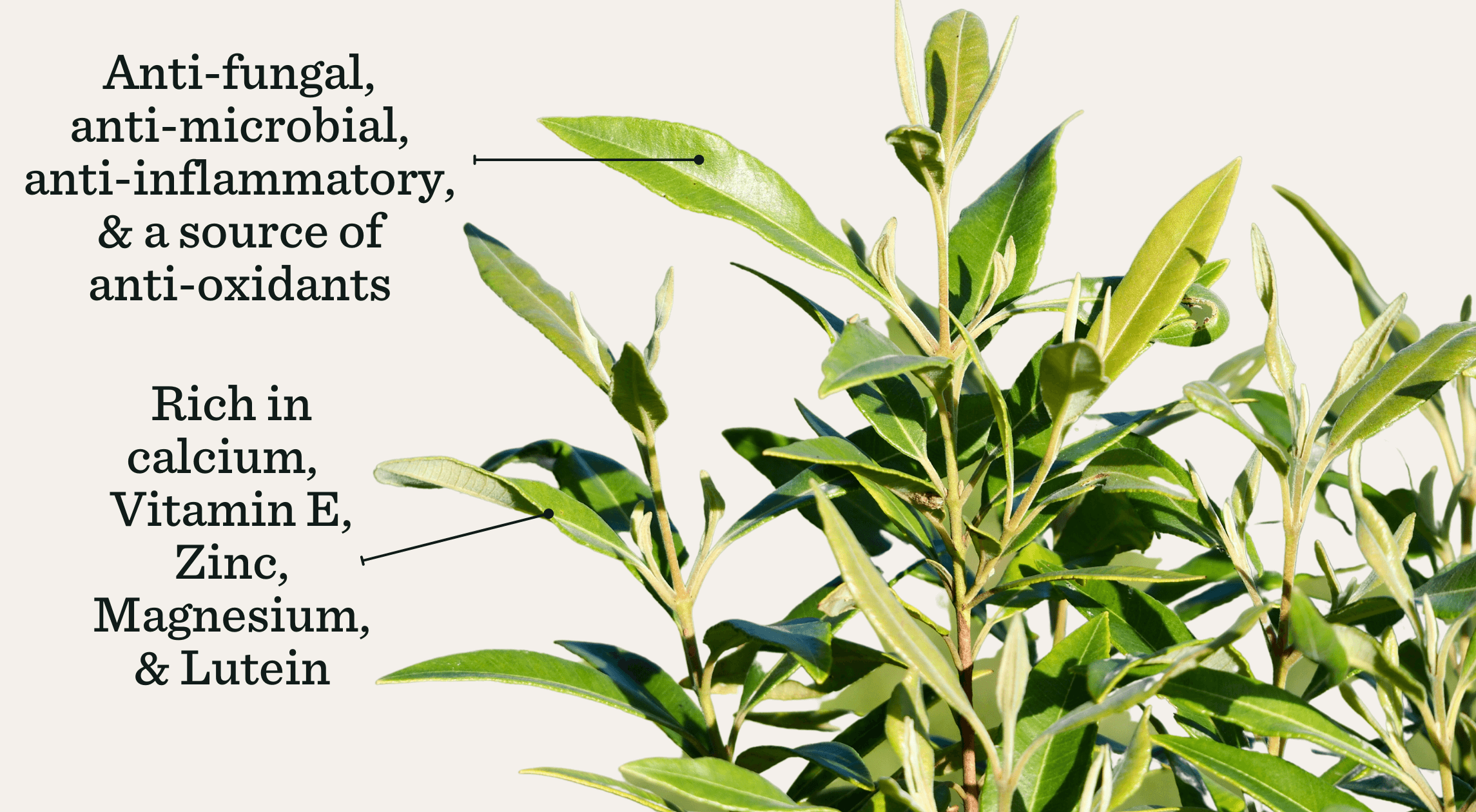
Myth 3: Lemon Myrtle products are artificial
A very common myth about some Lemon Myrtle products is that they are made with synthetic chemicals. Given the prevalent use of synthetic scents within the fragrance industry, we can understand why some believe this, but there are natural alternatives available as well, and in fact, our Natural Lemon Myrtle™ fragrance is derived directly from the Lemon Myrtle plant itself. We only use 100% pure Lemon Myrtle Essential Oil in our products. The extraction process involves obtaining the essential oils from the leaves of the plant.
These oils hold the vibrant, distinctive lemony scent that the plant is so well-known for and this all-natural method ensures that the fragrance captures the true essence of the Lemon Myrtle without the use of any synthetic elements or processing.
To know whether a product is natural, simply look at the ingredient lists and ensure it includes "Backhousia citriodora oil" or "Lemon Myrtle essential oil." These indicate the presence of natural Lemon Myrtle. Be cautious of words like "parfum" which suggests the presence of synthetic scents. 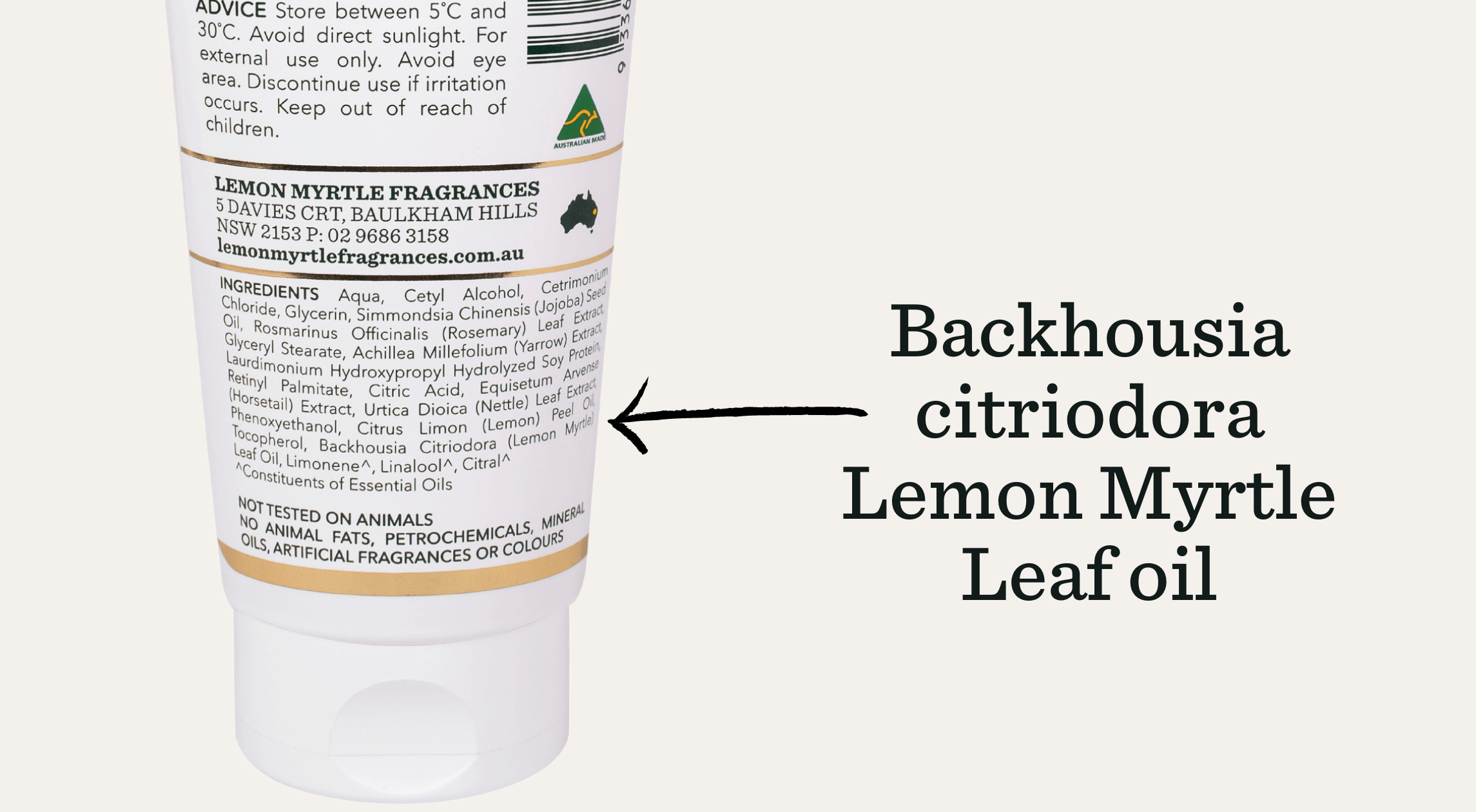
By reading labels, researching and selecting genuine Australian-Made Lemon Myrtle products, we can all benefit from the incredible products available out there, from food to household to skincare and pet care.
Lemon Myrtle Fragrances embodies these values through its support for local industries, sustainable practices, and commitment to health and wellness.
